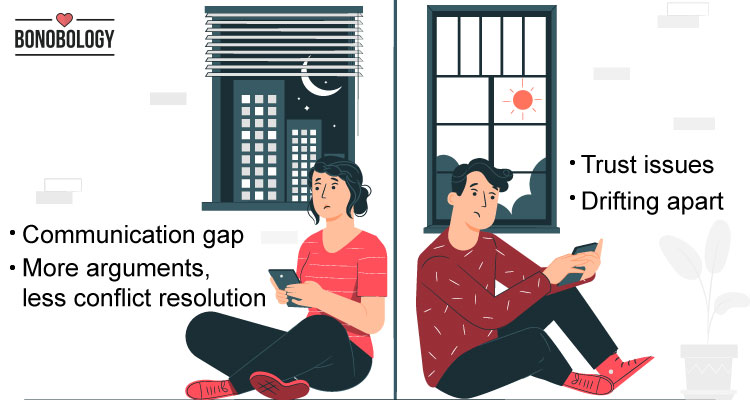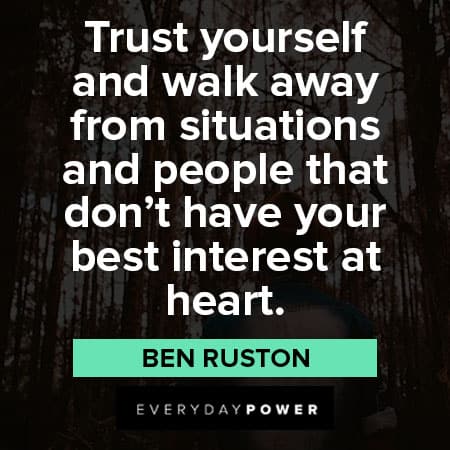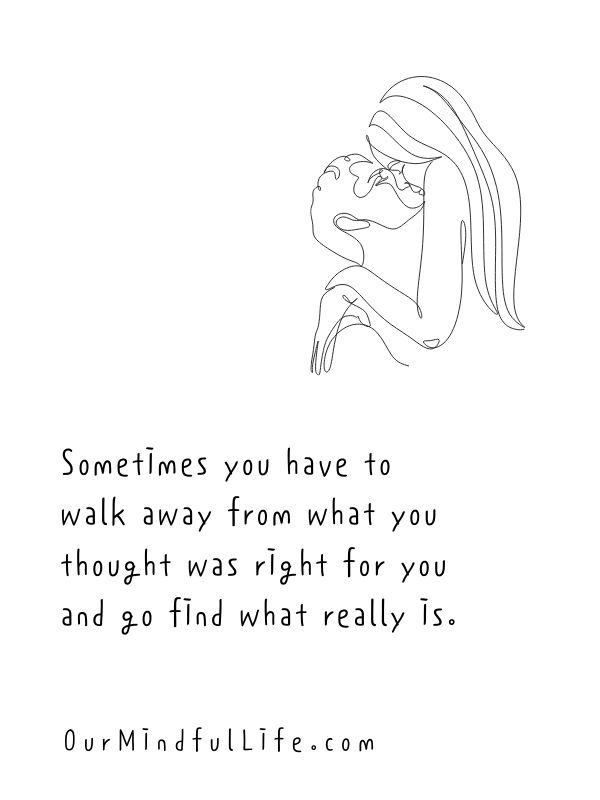
Signs that a Relationship Isn’t Working
When evaluating the dynamics of a relationship, certain signs can indicate that things may not be going as well as they should be. Recognizing these signs early can help individuals decide on the next steps in their relationship journey.
Lack of Communication
Effective communication is the cornerstone of any relationship. When partners cease to connect through meaningful conversations, it can lead to misunderstandings and resentment. Some common signs of communication breakdown include:
- Avoiding difficult discussions
- Limited sharing of thoughts and feelings
- Increasing use of sarcasm or passive-aggressive remarks
For instance, consider a couple who once enjoyed deep conversations but now struggle to discuss their day without it turning into a mundane exchange. If communication feels strained, it may be time to address the underlying issues.
Constant Arguments
Frequent disagreements can drain the emotional energy from both partners. While healthy conflict is a natural part of any relationship, when arguments become the norm rather than the exception, it can signal deeper problems. Signs include:
- Arguing about trivial matters
- Returning to the same issues without resolution
- Conversations that escalate quickly into shouting
An example could be a couple who finds themselves bickering over household chores, only to escalate the situation into personal attacks, indicating a lack of respect and understanding.
Feeling Unhappy or Unfulfilled
Lastly, a pervasive sense of unhappiness or unfulfillment can be a telling sign that a relationship needs reevaluation. This may manifest as:
- Loss of interest in shared activities
- Feeling drained after interactions
- Constantly questioning the future of the relationship
Take a moment to reflect: if one partner feels that their needs are unmet or that there’s a void where joy used to reside, it’s essential to confront these feelings. An emotional inventory might reveal whether it’s time for a candid conversation or a more significant life change. Recognizing these signs can be the first step towards deciding what’s best for both individuals involved.

Reasons to Walk Away from a Relationship
Deciding to walk away from a relationship is never easy, but sometimes it is the healthiest choice for both partners involved. Various reasons can signal that it’s time to let go, especially when safety and well-being are at stake.
Emotional or Physical Abuse
No one deserves to be in a relationship marred by emotional or physical abuse. This form of treatment undermines self-esteem and can lead to long-term psychological scars. Recognizable signs include:
- Frequent belittling or gaslighting
- Isolation from friends and family
- Physical harm or intimidation
For example, imagine a person who used to feel confident and happy but now finds themselves walking on eggshells to avoid angering their partner. In such cases, prioritizing personal safety is paramount, and seeking help is crucial.
Disrespect and Betrayal
Respect forms the foundation of any healthy relationship. When that respect diminishes, it can lead to feelings of betrayal. Key indicators might include:
- Broken trust through cheating or dishonesty
- Regularly disregarding each other’s feelings
- Emotional infidelity or secretive behavior
When trust is shattered, it can be incredibly difficult to rebuild. Picture a relationship where one partner repeatedly lies about finances or friendships; these behaviors can create an insurmountable divide.
Growing Apart and Misaligned Goals
As individuals evolve, so can their goals and values. It’s natural for couples to drift apart over time, leading to feelings of disconnection. Signs of this include:
- Different life plans, such as career aspirations or family planning
- Lack of common interests or activities
- The sense that conversations are no longer meaningful
Consider a couple where one partner aspires to travel the world while the other prefers stability and settling down. These differing visions can lead to resentment and dissatisfaction. Acknowledging these changes can empower individuals to seek their paths rather than prolong a relationship that no longer serves them.

Steps to Evaluate and Address Relationship Issues
When recognizing that a relationship may be reaching a critical point, it’s essential to take proactive steps to evaluate and address underlying issues. Navigating this path requires introspection, communication, and sometimes external support.
Self-Reflection and Communication
Beginning the journey of resolving relationship issues starts with self-reflection. Each partner should take time to consider their feelings and contributions to the current dynamics. Questions to ponder might include:
- What am I feeling in this relationship?
- How have my needs or priorities changed?
- What patterns have I noticed in our interactions?
Following personal reflection, open communication is vital. Approach your partner with honesty and kindness to express your thoughts. For example, if one feels neglected, they might say, “I’ve noticed we haven’t spent much quality time together lately, and I miss that connection.”
Seeking Counseling or Therapy
Sometimes, issues can feel too overwhelming to tackle alone. Seeking professional counseling or therapy can provide valuable tools for both partners. Whether individually or as a couple, therapy can help in:
- Understanding emotional triggers and patterns
- Learning effective communication strategies
- Rebuilding trust after conflicts
A friend’s experience illustrates this: after attending couples’ therapy, they gained new insights that transformed their approach to conflict, leading to healthier discussions.
Setting Boundaries and Taking Action
Establishing boundaries is indispensable for maintaining individual well-being within a relationship. Boundaries serve as guidelines for acceptable behavior and can help prevent resentment. Examples of boundaries might include:
- Designating personal time for self-care
- Agreeing on how to handle disagreements constructively
- Identifying behaviors that may be harmful
Ultimately, taking decisive action based on insights gained through reflection and communication can lead to meaningful changes. Whether that means recommitting to the relationship, seeking help, or, in some cases, deciding to part ways, setting clear intentions can foster a healthier, happier future for everyone involved.

Importance of Self-Care and Self-Worth in Relationships
As individuals navigate the complexities of relationships, it becomes increasingly vital to prioritize self-care and recognize personal worth. Fostering a healthy relationship starts with valuing oneself, which can significantly influence the dynamics with a partner.
Understanding Your Value and Needs
Understanding personal value is the first step toward establishing healthy boundaries. Each individual must recognize their own worth, which enables them to articulate needs clearly. Ask yourself questions like:
- What are my non-negotiables in a relationship?
- How do I want to feel in my partnership?
- What makes me happy and fulfilled?
For instance, if someone values loyalty highly, they might reevaluate a relationship where trust is constantly tested. Knowing what you deserve helps to build a foundation for respect and equality.
Prioritizing Mental and Emotional Well-being
Mental and emotional well-being should never be sidelined for the sake of a relationship. Prioritizing self-care allows for a balanced perspective on love and partnership. Consider incorporating these strategies:
- Regularly engage in activities you enjoy
- Practice mindfulness or meditation
- Maintain a support network of friends or family
One individual shared how dedicating time to hobbies led to improved self-esteem and made them more present in their relationship.
Learning to Let Go for Personal Growth
Finally, learning to let go—whether it’s of toxic habits or unfulfilling relationships—can be pivotal for personal growth. Sometimes, leaving a partnership that no longer serves one’s emotional health can open doors for self-discovery.
Consider what you could gain by moving on, such as:
- New experiences and personal freedom
- Opportunities for self-reflection and growth
- The chance to build healthier relationships in the future
Embracing self-worth and self-care isn’t just beneficial; it’s essential for creating and sustaining fulfilling connections with others. By investing in personal growth, individuals set the stage for future relationships grounded in mutual respect and love.

When to Make the Decision to Walk Away
Identifying the right moment to walk away from a relationship can be one of the most challenging decisions to make. However, certain indicators may signal that it is time to take that critical step toward a healthier future.
Repeated Patterns of Conflict
If repeated arguments become a recurring theme in a relationship, it can be a telltale sign that something deeper is amiss. Imagine a couple, Jamie and Alex, who find themselves engaging in the same fight about finances or household responsibilities every few weeks, with no resolution in sight. This ongoing cycle can lead to frustration and emotional fatigue. If conflicts never seem to resolve and instead escalate or evolve without resolution, it may be time to consider whether the relationship is on a positive trajectory.
Unresolved Issues and Lack of Effort
Another crucial factor in deciding to part ways is the presence of unresolved issues. If one or both partners feel stuck due to past grievances that never get effectively addressed, it can create a stagnant environment. Additionally, a lack of effort from one or both partners can lead to feelings of resentment. For instance, if repeated discussions about spending quality time together turn into empty promises, one partner may need to reflect on their commitment to the relationship.
Trusting Your Instincts for a Healthy Future
Ultimately, trusting your instincts is key when contemplating whether to walk away. Emotional intuition often provides a vital guide in relationship dynamics. If a gut feeling consistently tells you that something isn’t right, it’s essential to listen. Take time to reflect on your needs, values, and overall happiness. Recognizing these signs can empower individuals to make choices that serve their best interests and pave the way for a healthier, more fulfilling future.
